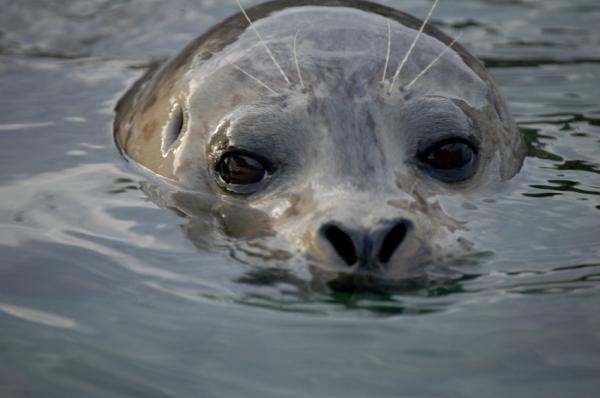Mercury pollution hurts seals
Methylmercury (MeHg), the most common form of mercury found in the blood of mammals and fish-eating communities, can hurt seals more seriously than previously thought. Similar results were found for human lymphocytes.
The likelihood of exposure to mercury comes from human-induced pollution or events such as volcanic eruptions.
According to the author of the study, Krishna Das of the University of de Liège, Belgium: 'Mercury is accumulated and expanded in the body of marine mammals, and adversely affects the health of these organisms. Specifically, the immune system is vulnerable to long-term exposure to mercury. ' To determine the scale of the problem, the authors performed analyzes of the mercury concentration in the blood of seals in the North Sea and examined the effects of MeHg in the laboratory.

A seal is swimming.(Photo: iStockphoto / Andy Raatz)
By increasing the amount of MeHg in lymphocytes, the researchers determined that the level of mercury found in the blood of seals is enough to damage vital cells in the immune system. They said: 'Although the in vitro method used in this study represents only a very small part of the complexity of the problem, it provides an understanding of the specific effects of the problem. Mercury infection '.
The immune system damage in the marine seal community may have happened long ago. The outbreaks of viruses caused by phocine disorders in 1998 and 2002 have killed thousands of seals, which are linked to the impact of pollution on the animal's ability to resist infection.
- California seals change in bulk because of seawater pollution of mercury
- Hanoi air pollution, the elderly and children should limit out
- Startled, Vietnam is affected by mercury pollution from China?
- The truth about information 'Mercury hovering in the air of Hanoi'
- Quiet assassin from mercury-contaminated fish
- New miraculous effect of orange peel: Eliminate mercury pollution
- Things you may not know about Mercury
- The concentration of mercury in the rainwater of the US has been so dangerous
- The secret to pre-existing natural danger of hat seals
- Overview of Mercury
- 84% of the world fish is contaminated with mercury
- Save 100 young seals on the Dutch coast
 Is the magnetic North Pole shift dangerous to humanity?
Is the magnetic North Pole shift dangerous to humanity? Washington legalizes the recycling of human bodies into fertilizer
Washington legalizes the recycling of human bodies into fertilizer Lightning stone - the mysterious guest
Lightning stone - the mysterious guest Stunned by the mysterious sunset, strange appearance
Stunned by the mysterious sunset, strange appearance